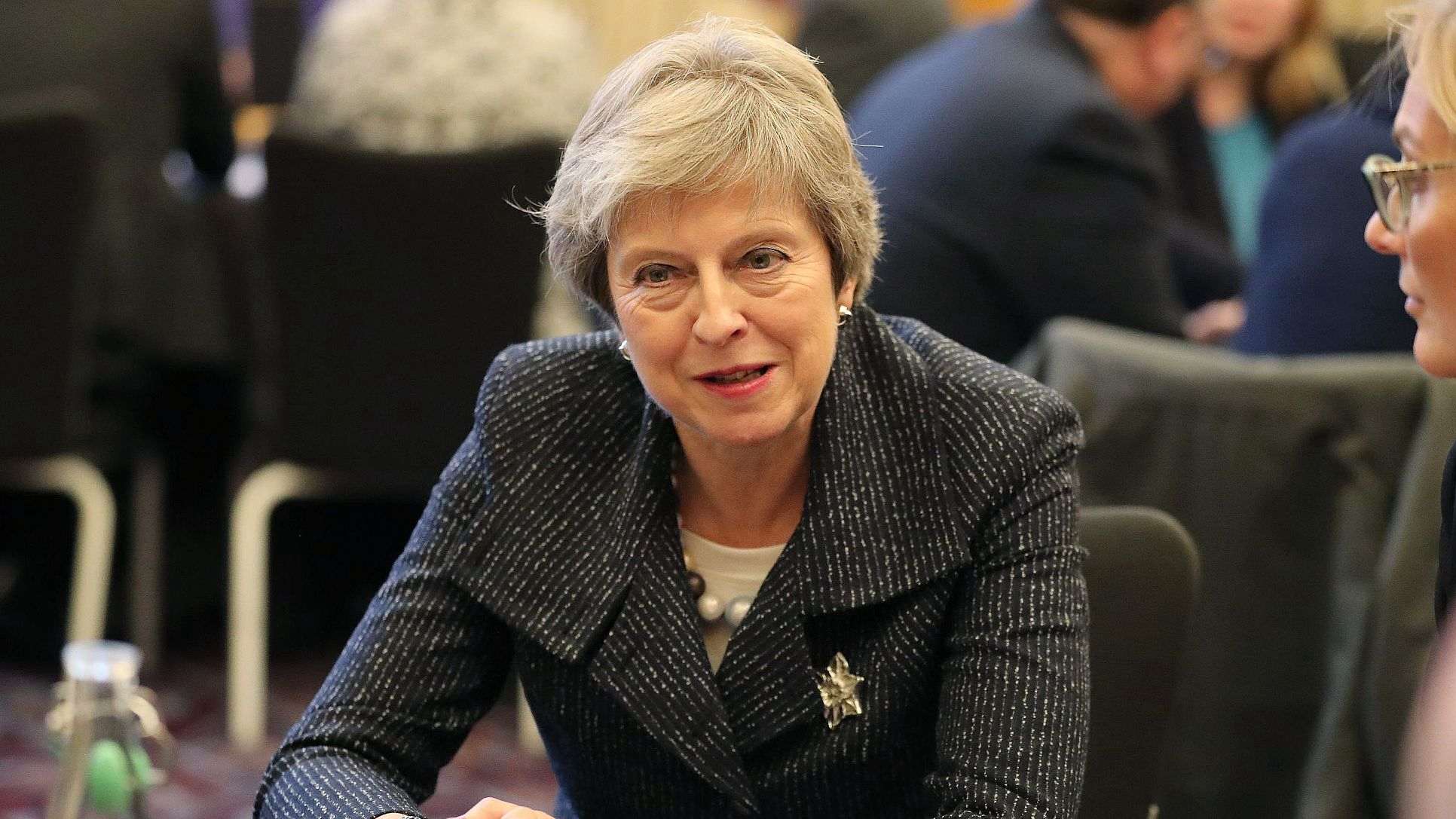
Politics
11:03, 28-Nov-2018
May and Corbyn to clash in primetime Brexit TV debate
Updated
10:17, 01-Dec-2018
CGTN

British Prime Minister Theresa May and opposition Labour leader Jeremy Corbyn will go head-to-head in a live primetime television debate on Brexit days before a crunch parliamentary vote on Britain's deal agreed with the EU.
May said the format of the debate would need to be decided by broadcasters. Corbyn's team swiftly accepted the offer, prompting demands from other parties and anti-Brexit groups to insist one of their supporters is allowed to take part.
This would be the first time May has been willing to go head-to-head with the Labour leader in a live television debate after she refused to take part in any such debate in the run-up to last year's general election.

Jeremy Corbyn, leader of the UK opposition Labour party, delivers a speech at a conference in London, UK, November 19, 2018. /VCG Photo
Jeremy Corbyn, leader of the UK opposition Labour party, delivers a speech at a conference in London, UK, November 19, 2018. /VCG Photo
After securing a deal with the EU on Sunday, May has launched a nationwide campaign to drum up support for her agreement, although she was left embarrassed after U.S. President Donald Trump said it sounded like a good deal for the EU rather than the UK.
Leaders' debates have become a fixture of British politics over the past decade, with months spent trying to agree to a debate format during the 2015 general election. Time pressure means political parties have a matter of days to come to an arrangement this time.
May came in for heavy criticism during the 2017 snap general election for dodging direct TV debates with other party leaders and sending then interior minister Amber Rudd to take part instead.
The debate, if both sides can agree on the format, is expected to take place on December 9, two days before lawmakers vote on whether to support her deal, in one of parliament's most important moments in decades.
Sales in Scotland
May will take her Brexit sales pitch to Scotland on Wednesday, where she is likely to face an uphill struggle to convince skeptical voters of the benefits of her deal for businesses and fishing industry.
May is trying to drum up backing for the exit deal she has negotiated with Brussels in the hope of triggering a groundswell of support from businesses and citizens that will push lawmakers from across the political spectrum to drop their opposition.
"It is a deal that is good for Scottish employers and which will protect jobs," she said, adding that the accord created a new free trade area defining an "unprecedented economic relationship that no other major economy has."

British Prime Minister Theresa May speaks at a press conference in Brussels, Belgium, November 25, 2018. /VCG Photo
British Prime Minister Theresa May speaks at a press conference in Brussels, Belgium, November 25, 2018. /VCG Photo
"At the same time, we will be free to strike our own trade deals around the world – providing even greater opportunity to Scottish exporters."
May needs to win a vote in parliament on December 11 to approve her deal but that looks difficult with an apparent large majority of lawmakers – including the Scottish National Party which has 35 of Scotland's 59 seats in parliament – opposed to it.
(Top image: British Prime Minister Theresa May speaks during her visit to the Queen's University in Belfast, UK, November 27, 2018. /VCG Photo)
Source(s): Reuters

SITEMAP
Copyright © 2018 CGTN. Beijing ICP prepared NO.16065310-3
Copyright © 2018 CGTN. Beijing ICP prepared NO.16065310-3